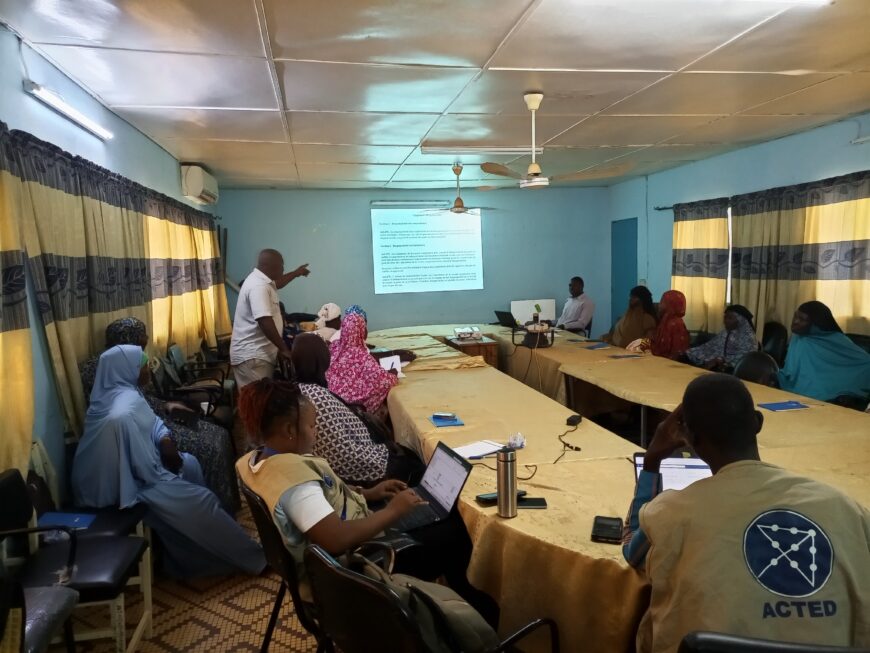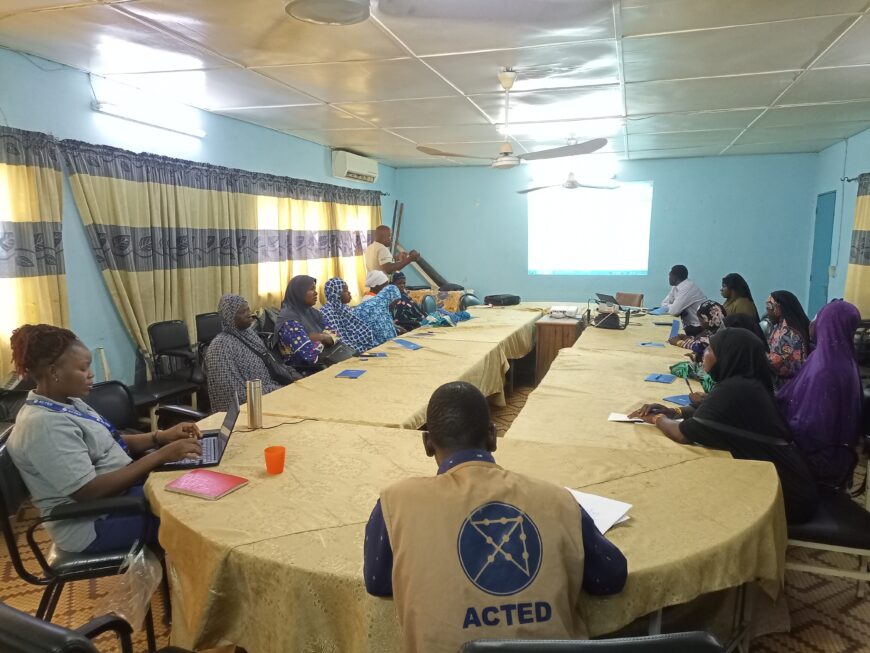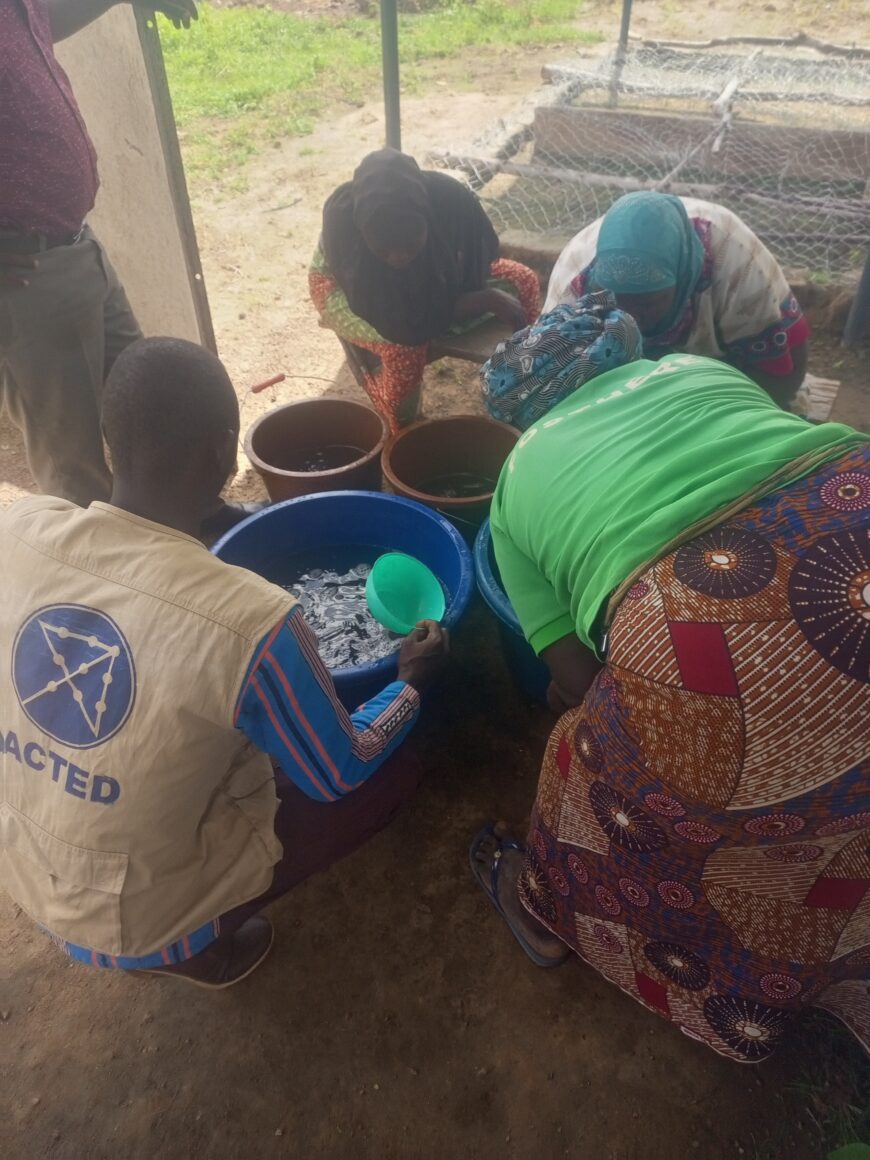As part of a project supported by USAID since 2022, Acted supports the development of innovative economic activities adapted to the country's climatic constraints for the benefit of displaced women. During a follow-up visit to the field, the Acted teams were able to speak with Bibata LANKOANDE , president of the SAMARE cooperative, who supported the project. She spoke on behalf of the 12 women members.
”We are twelve internally displaced women who found ourselves in Fada N’Gourma with no economic activities. In order to guarantee a source of income to meet the needs of our families, we were looking for a profitable and less saturated activity to carry out together. Hence the idea of producing fish and setting up our SAMARE cooperative.
We’re delighted because our perseverance is paying off. Acted is supporting us in the development of our fish farming activities and we intend to exceed expectations. From two production tanks, we now have 6 tanks with 700 fish in production.”
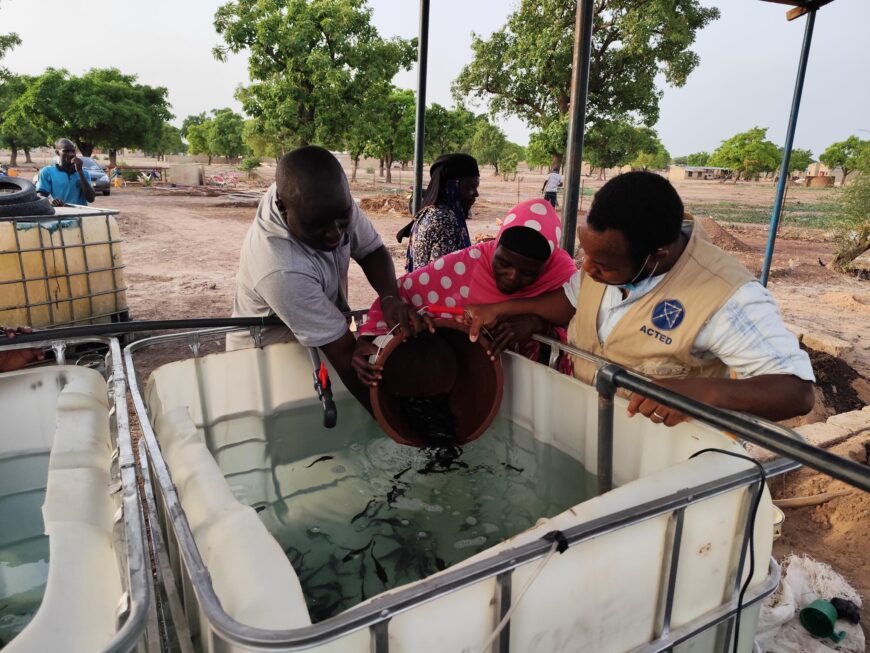
‘We were forced to come to Fada N’Gourma, the capital of the East region, in 2021 from the villages of Tawalbougou (9 women) and Koulpelgo (3 women) following an ultimatum issued by armed groups. In our home villages, each of us had an economic activity (farming, small businesses, raising small ruminants, gardening) that enabled us to contribute to the daily needs of our families. After the move, when we all found ourselves in the same host area, we began to think about setting up a collective, profitable business. But it’s not easy to concentrate on future activities when our immediate and urgent needs are not covered. With the support of our husbands and our solidarity, several meetings were held to share business ideas.
It was on the basis of these discussions that we came up with the idea of setting up a modern fish production cooperative called SAMARE. SAMARE means abundance in the Yana language. Although we created it in 2021, it was only in 2023 that we were able to register it officially with the authorities.
The idea came from one of the members who had already been in a fish farming group before and who saw it as an innovative activity because it was little known in the town of Fada. We also found it interesting and innovative. Based on his experience, we wanted to understand how production works and start with a small production unit. Thanks to fish farming, we planned to supply fresh fish to the people of Fada N’Gourma and the surrounding villages.
Thanks to the support of our husbands, the cooperative was able to set up on a 2-hectare site in sector 2 of Fada N’Gourma. With the help of local masons, we were able to erect 02 cement tanks on the site. These ponds can each hold 400 to 500 fry during a production period. On the advice of agricultural technicians, we have been able to combine market garden production on our site. This means we can also offer onions, aubergines, okra and other crops.”
Since the cooperative was set up, these 12 women have been able to provide two production cycles of 500 to 700 fish per cycle, representing a total of 150,000Fcfa for the two cycles.
With the support and funding from Acted, their expected income will more than double. They expect to generate an income of at least 360,000 CFA francs by the end of the new production cycle.
Acted's support in scaling up our economic activity
“In an effort to develop and perfect our fish farming activity, we submitted our official recognition receipt to the Provincial Department of Agriculture, Animal Resources and Fisheries for any assistance from a partner.
This is how we were selected by the NGO Acted to benefit from its support for fish farming and to scale up our activity. After several visits to our production site and interviews with our members, we were selected.”
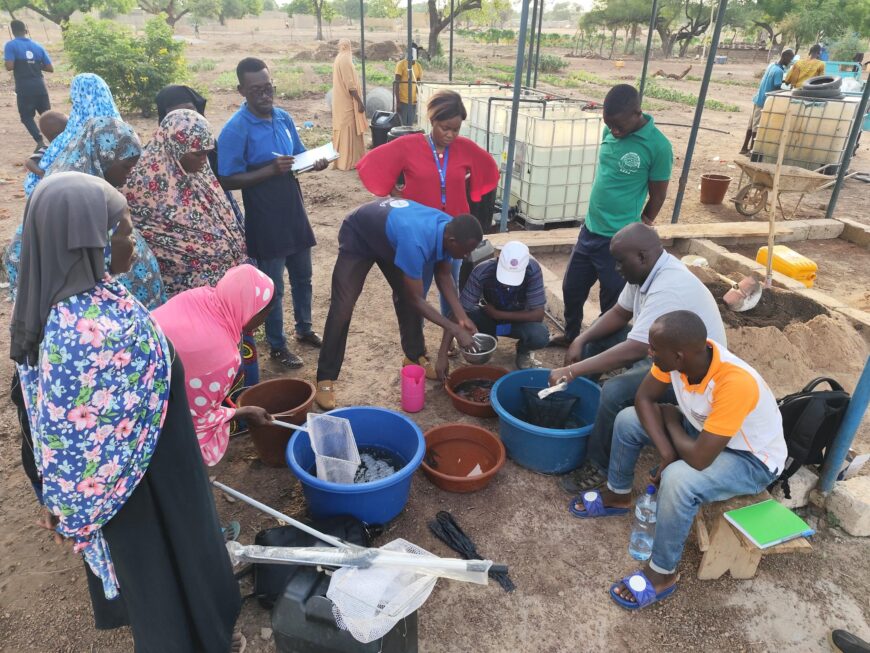
Within the framework of the USAID-funded project ‘Fighting food insecurity and supporting vulnerable populations affected by conflict in and outside formal and informal displacement contexts through the coordination and delivery of essential and vital services in the North, East, Centre-East and Boucle du Mouhoun regions of Burkina Faso’, Acted has supported the fish farming activities of the SAMARE cooperative. The support provided by Acted to the cooperative is made up of three key components, namely capacity building for beneficiaries, the provision of fish farming equipment and materials, and support and advice throughout the production cycle, in collaboration with the Provincial Department of Agriculture, Animal and Fisheries Resources of the Gourma province.
‘Thanks to this partnership with Acted, we benefited from 5 days of training on the themes of associative life and fish farming. This training was very welcome, especially as many members of the cooperative had never had any training in fish farming. Thanks to this training, we learned how a cooperative is organised and how it works, and how to build relationships with other cooperatives in order to make ourselves better known. The training also enabled us to learn about the different types of fish farming and fish production techniques in the ponds, in particular how to feed the fish, how to tell if the fish is comfortable in its environment, how to tell if the water is no longer good for the fish, how to tell if the fish is sick, etc.
After the training course, we held meetings to further enhance our site and to ensure that we received the equipment supplied by Acted. We were able to install a shed to house the mobile tanks supplied by Acted, as well as a water supply system.
Acted then provided us with fish farming equipment and fry. The fish farming equipment we received from Acted consisted of 04 above-ground tanks of 1m3 each with an oxygenation system, nets, plastic basins, plastic buckets, landing nets, measuring tape, fishing nets, etc. We also received 800 fry and 25 bags of 20 kg of fish per feeding age group, so we were able to start our new production in May 2024’.
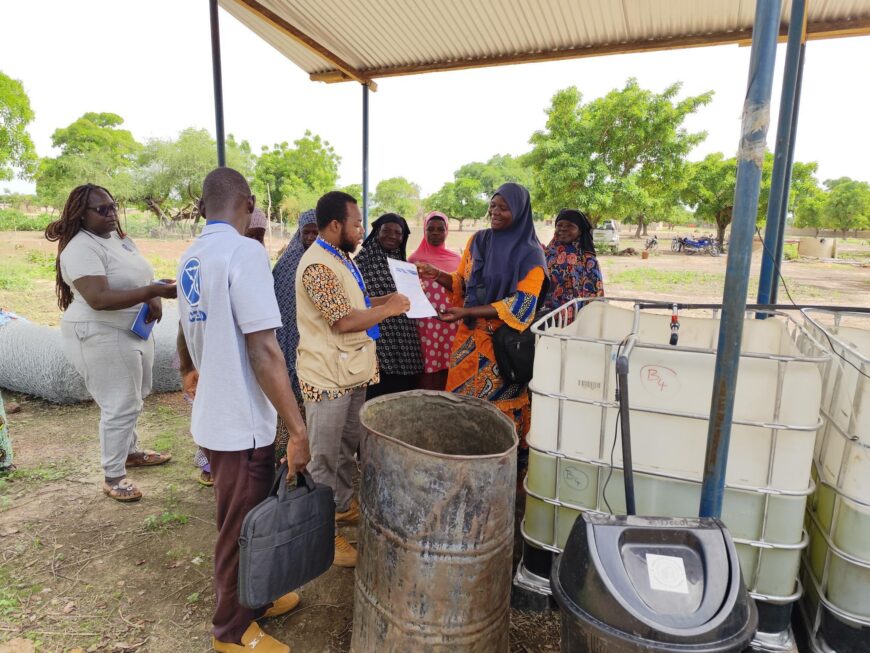
In order to improve production efficiency, the cooperative has organised a rotation by groups of 3 people. Each sub-group feeds the fish 2 or 3 times a day, the water in the tanks is changed every 3 days and the tanks are washed every 2 weeks. Each group in turn monitors the fry and their health, in particular their weight, but also the density and PH of the water are measured every day.
‘This donation from Acted has enabled us to increase our production capacity. From 2 cement tanks we now have 6 production tanks. According to our current estimates, we expect to market around 600 fish weighing an average of 500g in Fada in October 2024.
Acted’s livestock team and the Gourma Provincial Department of Agriculture, Animal Resources and Fisheries support and advise the cooperative’s members throughout the production process. Every week, at least one visit is made to the production site to check on the progress of the fry and compliance with the recommendations. At the end of each month, the monitoring team weighs and sorts the fry. This process helps to homogenise the growth of the fry, reduce cannibalism and ensure that the right feed is served for each average weight.”
Inspiring development perspectives
“As Chairman, since the company was founded, the members have trusted me to manage our joint structure with their support. We have all lived through the same history of displacement. We draw our strength from our past and our determination to move forward.
When we came up with the idea for our joint project, each of us tried to find various resources to be able to run the business. In particular, I was able to negotiate the ownership of a member of my family for the site.
If Acted hadn’t also supported us, it would have taken us many years to be able to acquire this type of equipment. It’s a great relief and an honour for us to have benefited from this endowment.
When we meet, we talk about the future and we plan so far ahead that Acted will be surprised when they come back to see us after a few years.
We plan to develop an integrated farm using the waste from the fish farm to grow vegetables and develop a fruit garden.
Once production is fairly constant, we’ll move on to processing. We will also be supporting other internally displaced women interested in similar activities.
What’s more, Acted’s support has enabled us to increase our market-garden production, since we can use the water from the various ponds to water our market-garden crops, which are growing very quickly. This partnership has raised the economic level of our cooperative society, and in the coming years we intend to support other emerging cooperative societies operating in the same field. Once the current production has been sold, the profits will be used to buy other species, build new vats and meet the needs of member households. In the medium term, we will be able to set up an integrated farm and increase the number of new members. This will provide the town of Fada and the surrounding area with a constant supply of quality fish, vegetables (onions, cabbage, okra, etc.) and fruit (papaya, oranges, etc.).”
The perseverance of these women in maintaining their financial independence and providing for their families despite their difficult displacement situation is inspiring for the rest of the community. It encourages other women to develop their activities, which can then be supported by Acted.
